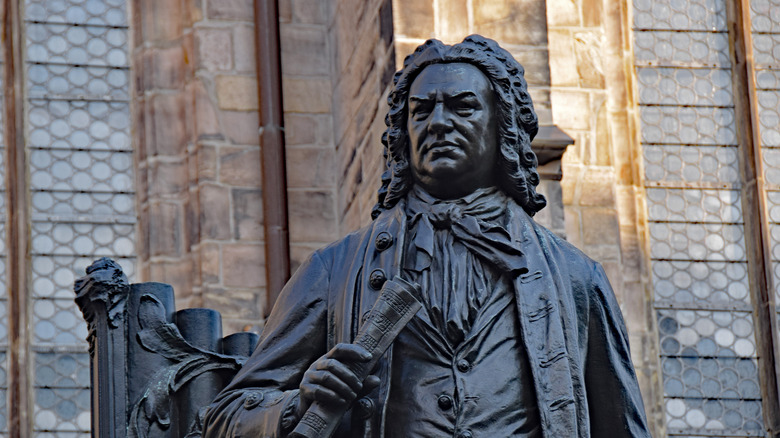The Odd Reason Johann Sebastian Bach Spent A Month In Jail
Johann Sebastian Bach was, beyond all question, one of the greatest figures in the history of classical music. Born into a family that contains multiple other famed musicians bearing the same surname (to avoid confusion with other Bachs, he's referred to by all three names), Bach's "Toccata and Fugue in D Minor" and other compositions set the foundation for generations of other classical composers that came after him.
What you may not know about Bach is that, in stark contrast to his image as a dour and serious man of music and religion, he spent some time in the clink. However, the "crime" of which he was accused was less about an actual criminal violation and more about angering a person who had the power to throw him in jail, according to Classical-Music.com. Further, the "jail" he served his time in might have been less of a prison cell and more of a comfy retreat.
Bach angered a wealthy patron
Back in the early 1710s, according to Mental Floss, Bach was working as a court musician in the employ of the Duke of Sachsen-Weimar. After five years in the duke's court, Bach was effectively doing the job of capellmeister, or the director of music, although that title was still held by the incumbent, an aged man who could no longer play. The composer thought he would be a shoo-in for the job once the actual capellmeister died, but when he did, the job went to the capellmeister's son. Furious, Bach demanded that he be dismissed, and indeed, a rival court promptly hired Bach and gave him the job he'd been striving for. However, according to Classical-Music.com, the Duke of Sachsen-Weimar was having none of Bach's defiance, and threw him into the pen for a few weeks. Officially, the reason for his imprisonment was "too stubbornly forcing the issue of his dismissal."
Bach's "prison" was probably — though there's no knowing for certain — rather comfortable, and indeed, the composer had access to writing implements. He spent his incarceration writing music, before his old employer (and jailer) released him and, reluctantly, let him go from his job.

